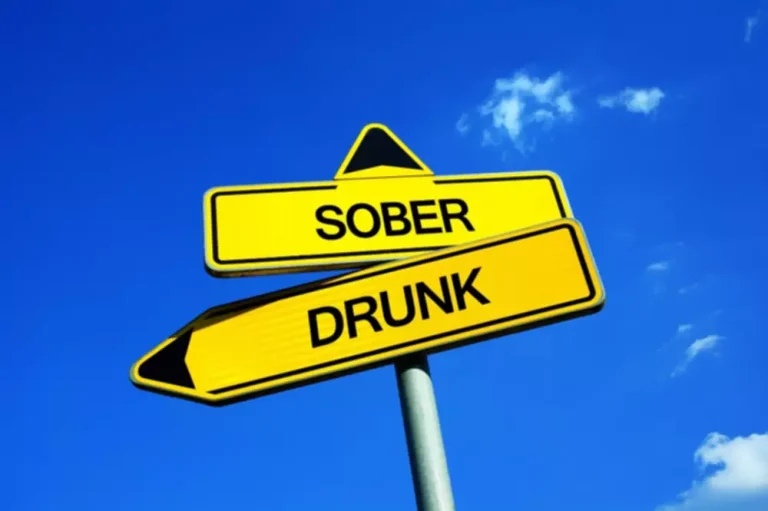Although most cases of alcohol withdrawal syndrome are mild and do not necessitate medical intervention, severe presentations can lead to life-threatening complications and require urgent intervention across multiple healthcare settings. The syndrome typically presents as mild anxiety and gastrointestinal discomfort and can progress to severe manifestations, such as alcohol withdrawal delirium, which poses significant diagnostic and management challenges. In people with a long history of alcohol abuse, the severity of alcohol withdrawal symptoms increases progressively over time with each additional attempt to quit drinking. In other words, repeated detoxifications increase the likelihood, severity, and duration of alcohol withdrawal seizures. When alcohol consumption is stopped after prolonged alcohol abuse, these suppressive effects of alcohol are withdrawn. The sudden change in brain chemistry results in overactivity in the brain, which is what causes the alcohol withdrawal syndrome.
Get Help for Abuse Alcohol
Ketamine produces out-of-body dissociative experiences, causing feelings of disconnectedness, which may be perceived as observing themselves from afar. The hallucinations typically last 30 to 60 minutes when introduced intravenously or intramuscularly, though effects can linger one to two hours or longer. After the peak, users may feel disoriented, with effects gradually diminishing. 1Clinicians generally distinguish between signs and symptoms of a disorder or syndrome.
- Approximately one in 10 people with alcohol withdrawal syndrome are affected by seizures.7 If left untreated, up to one in three of these patients go on to experience delirium tremens.
- Whereas only a small percentage of patients withdrawing from alcohol develop status epilepticus, alcohol withdrawal may be a complicating factor in approximately one fifth of all patients with status epilepticus.
- Neurons within the deep layers of the superior colliculus (16) and the periaqueductal gray (17) also may play a role in the initiation of audiogenic seizures.
- Alcohol withdrawal is one of the most common causes of adult-onset seizures.
- Potentiation of extrasynaptic GABA receptors likely contributes to the anticonvulsant activity of ethanol, including its protective activity against alcohol withdrawal seizures.
Severe Symptoms
This is especially important in elderly patients and those with hepatic dysfunction. Alcohol withdrawal (alcohol withdrawal syndrome) is a range of symptoms that can happen if you stop or significantly reduce alcohol intake after long-term use. Compensatory upregulation of NMDA and kainate receptors (54) as well as calcium channels (55,56) also have been implicated in alcohol dependence and withdrawal seizures. The relevance of this mechanism is highlighted by the fact that NMDA-receptor antagonists are highly effective anticonvulsants in animal models of alcohol withdrawal seizures (59). Alcohol withdrawal seizures typically aren’t deadly on their own, but they can lead to dangerous complications.
- Recognition and treatment of withdrawal can represent a first step in the patient’s recovery process.
- Alcoholics who are awaiting surgical or medical treatment often exhibit DT’s when their alcohol consumption is abruptly interrupted by hospitalization.
- In addition, data indicate that carbamezapine decreases the flow of glutamate into slices of the hippocampus, a part of the brain involved in seizures (Olpe et al. 1985).
- It is important to note that the symptoms of alcohol withdrawal may occur not only with abrupt cessation of alcohol use but also with a reduction in use.
Supporting Long-Term Abstinence
I thank Prosper N’Gouemo for insights into the physiology of alcohol withdrawal seizures. At Healthgrades, our Editorial Team works hard to develop complete, objective and meaningful health information to help people choose the right doctor, right hospital and right care. Our writers include physicians, pharmacists, and registered nurses with firsthand clinical experience. All condition, treatment and wellness content is medically reviewed by at least one medical professional ensuring the most accurate information possible.
Why it Is Important to go to Medical Detox for Alcohol Withdrawal?
Intubation is frequently necessary if phenobarbital or propofol are given. Benzodiazepines are typically metabolized by hepatic oxidation followed by hepatic glucuronidation. In addition, alcohol withdrawal is characterized by insomnia and gastrointestinal disturbances (nausea and vomiting). In this article, learn what alcohol does to the brain, how it can lead to seizures, and what you need to know about alcohol use if you already have a seizure disorder. This depends on the individual and the results of laboratory tests that their doctor may order.
Alcohol withdrawal timeline
Status epilepticus is a medical emergency that may lead to lasting brain damage or death. Before a seizure, people may experience an aura or feel a change in sensation are alcohol withdrawal seizures dangerous — such as smell, taste, sound, or vision — due to abnormal activity in the brain. Alcohol seizures may share symptoms with seizures that are not linked to alcohol.
Medications
- Newer agents, such as chlormethiazole, topiramate, gabapentin, and valproate are promising, but validation in controlled clinical trials is necessary.
- Using a CIWA-Ar score of at least 8 as a cutoff, treatment begins with diazepam (5 to 10 mg) followed by hourly assessment and repeated dosing until the score is less than 8.
- Status epilepticus is a life threatening condition in which a person has a seizure lasting longer than 5 minutes without regaining normal consciousness or has more than one seizure within 5 minutes.
- I thank Prosper N’Gouemo for insights into the physiology of alcohol withdrawal seizures.
- In the United States, most states have low-cost or free rehabilitation programs for those who are uninsured.
Although these are general guidelines, your tolerance or consumption recommendation can vary based on your overall health, size, and medical condition. They should also make sure you attend your counseling appointments and visit the doctor regularly for any routine blood tests that may be ordered. However, treatment is effective in improving the survival rate for this condition. Heavy drinking may also cause spikes in the risk of serious heart problems. However, scientists remain unsure about how sudden deaths arise from AUD. Always consult your healthcare provider to ensure the information displayed on this page applies to your personal circumstances.
Read on to learn about the symptoms of AWS, as well as how it can be treated or prevented. Sudden death in the context of AUD is not the same thing https://ecosoberhouse.com/ as death from alcohol withdrawal. Research suggests that it can arise due to a sudden worsening in liver problems, which AUD can cause.
Treatment Settings
For those with known AUD, it is best to coordinate alcohol reduction or cessation with a healthcare professional so they can proactively manage alcohol withdrawal symptoms. This article examines how alcohol withdrawal can be fatal, including the outlook for those with this condition. It also details the symptoms and treatment of alcohol withdrawal and discusses when to seek help for alcohol use disorder (AUD). Over half of those with alcohol withdrawal seizures may have repeat seizures, and up to 5% of cases may lead to status epilepticus.
Linking Withdrawal to Alcoholism Treatment
Signs and symptoms of alcohol withdrawal that are a result of this brain activity include tremors, muscle rigidity, seizures, and delirium tremens. Benzodiazepines are effective in the primary prevention of ethanol-withdrawal seizures during alcohol detoxification. In contrast, intravenous phenytoin was not effective in preventing a second ethanol withdrawal seizure. Status epilepticus in the setting of ethanol withdrawal should be treated according to standard protocols, including the use of phenytoin. The long-term administration of anticonvulsants for uncomplicated ethanol withdrawal seizures is unnecessary and possibly dangerous.





